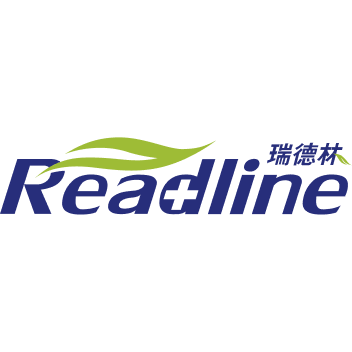b

Thank You!
Your requirement has been sent, we will contact you quickly!
Sent Failed!
Try again!
Product Name: | β-Nicotinamide Mononucleotide | CAS No.: | 1094-61-7 |
Other Names: | Beta-Nicotinamide Mononucleotide; nicotinamide mononucleotide; | Certificates: | GMP; ISO9001; HALAL; KOSHER; FSSC2000 |
Abbreviation: | NMN; β-NMN | Type: | Food Grade; Pharm Grade |
Appearance: | White Powder | Place of Origin: | Guangdong, China |
MOQ: | 5 KG | Shelf Life: | 2 Years |
Application: | β-Nicotinamide Mononucleotide is a precursor for NAD+ biosynthesis. NAD+ is a very important metabolic redox coenzyme in eukaryotes and is an important part of a large number of enzymatic reactions. It plays a vital role in a variety of biological processes in the body, including cell death, aging, gene expression, neuroinflammation, and DNA repair. | ||
10 Metric Tons/Year
Packaging Details: | 25 KG / Cardboard bucket |
Port: | Guangzhou Port, Shenzhen Port, or Other Main Ports in China |
Items | Standards |
Physical Analysis | |
Description | White Powder |
Assay(HPLC) | ≥99.0% |
Bulk Density | 0.3-0.5 g/ml |
Ethanol | ≤500 PPM |
MeOH | ≤50 PPM |
PH | 3.0-4.0 |
Heavy Metal | |
Pb | ≤0.1 mg/kg |
As | ≤0.1 mg/kg |
Hg | ≤0.1 mg/kg |
Cd | ≤0.2 mg/kg |
Microbiological Analysis | |
TMAC | ≤100 cfu/g |
Coliform | ≤0.43 mpn/g |
Mold&Yeas | ≤25 cfu/g |
Escherichia Coli | Negative |
Salmonella | Negative |
Staphylococcus aureus | Negative |
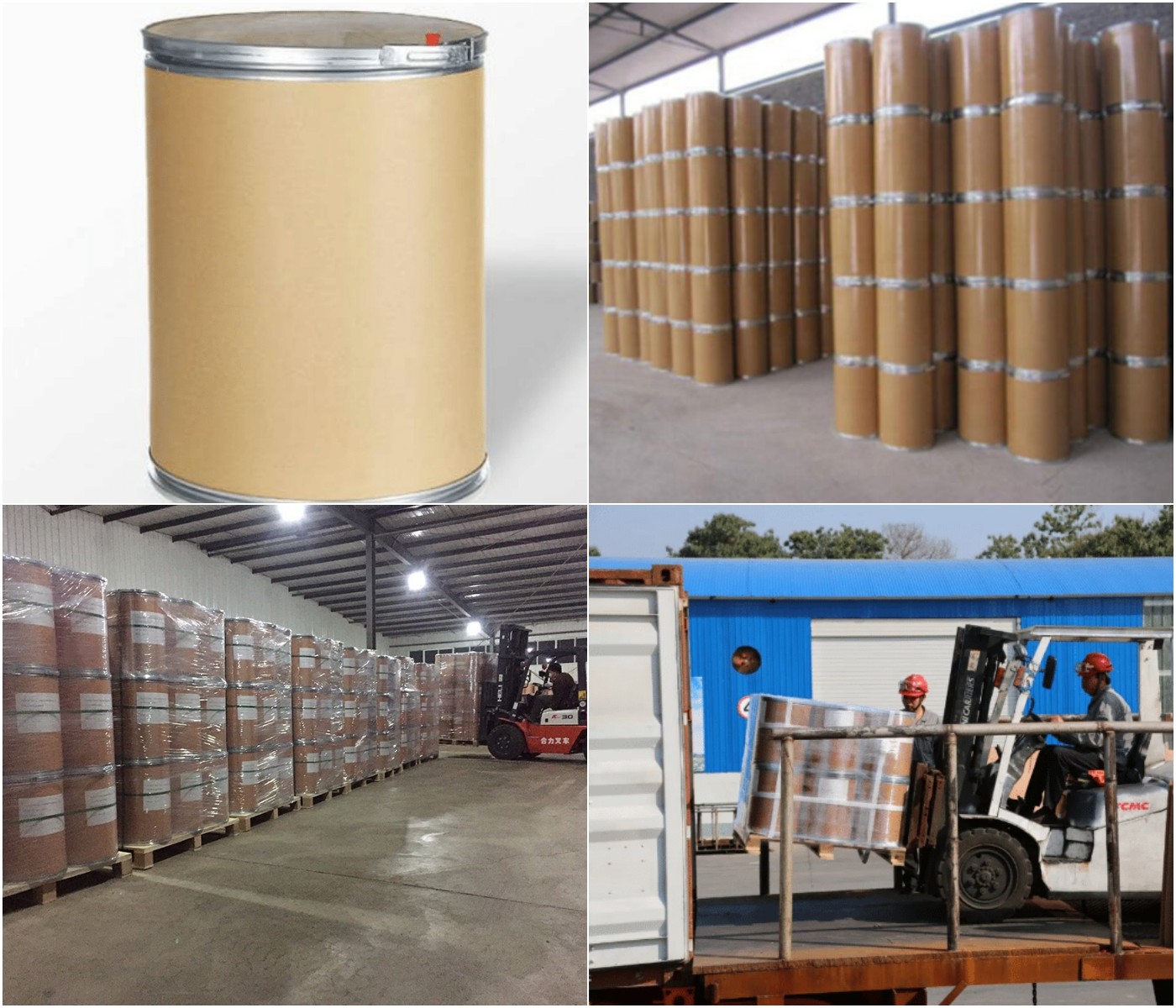
Shenzhen Readline Biotech Co., Ltd. is a professional β- Nicotinamide Mononucleotide manufacturer. Founded in 2017, it is an innovative high-tech enterprise with synthetic biotechnology as the core and multidisciplinary application. The world takes the lead in applying synthetic biotechnology to the full green commercial production of "life molecules", and promotes "carbon neutrality" and "carbon emission reduction" in the field of characteristic functional raw materials. Its product applications cover biomedicine, nutrition and health, medical beauty Daily chemical, animal health, green agriculture and biological materials and other fields.
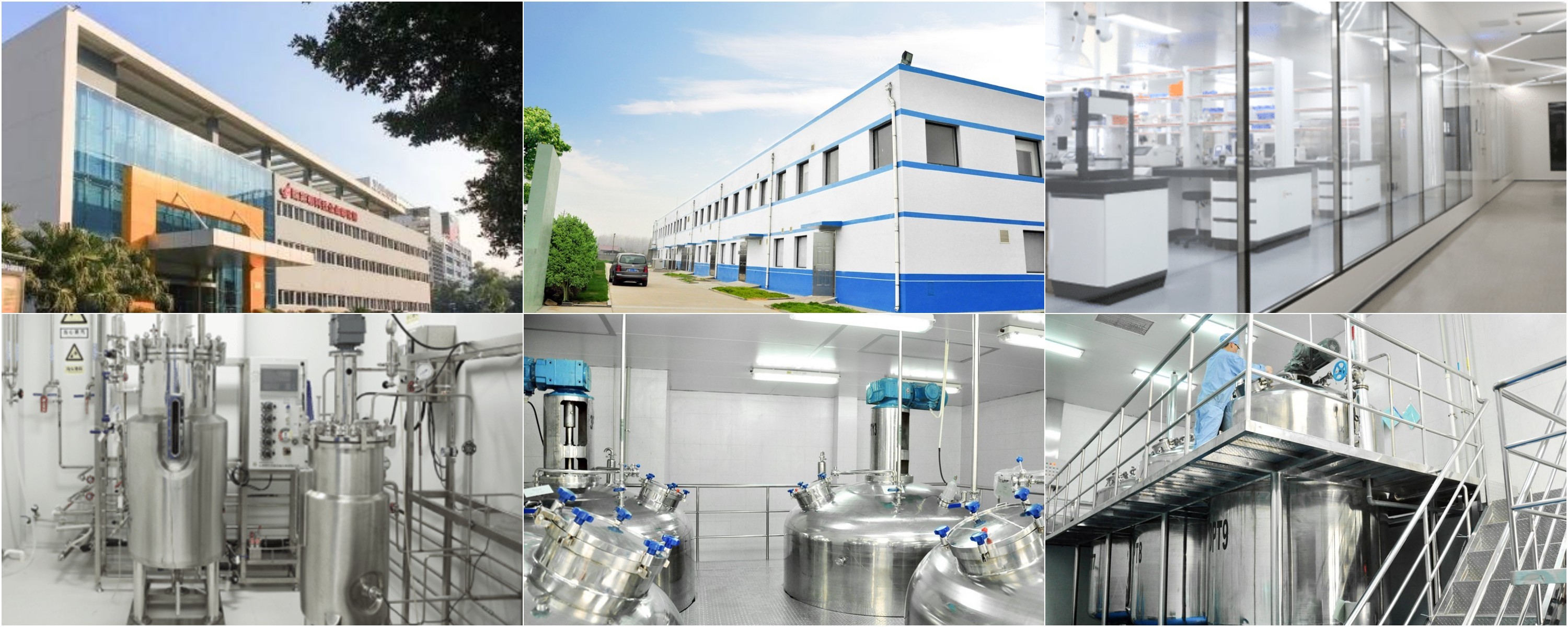
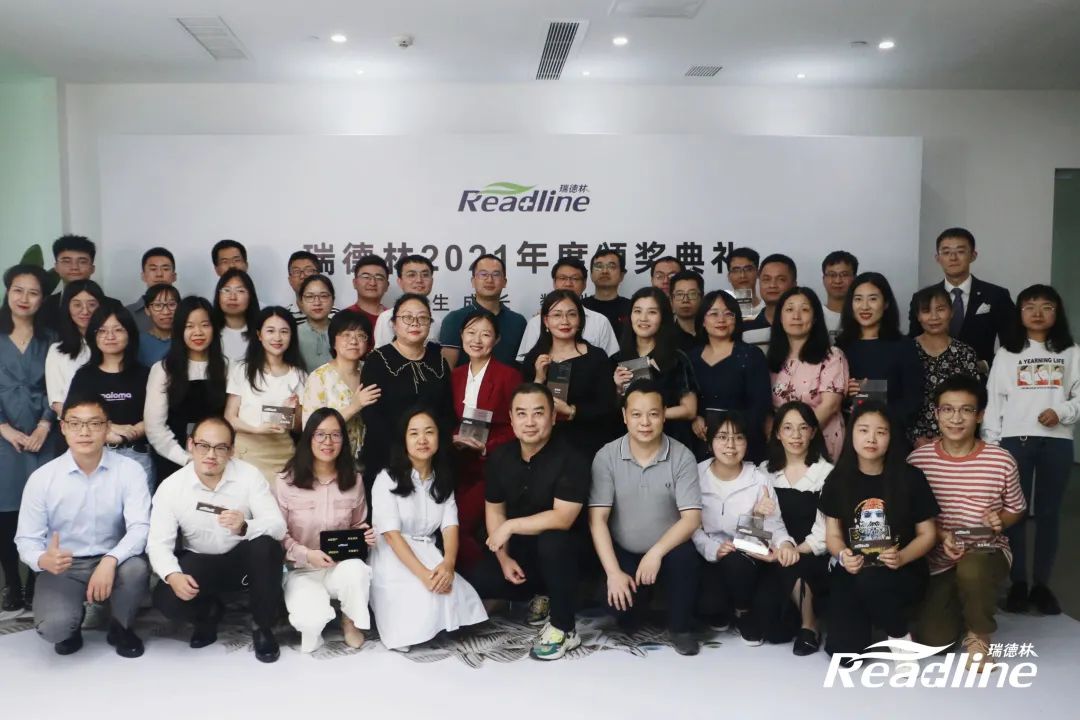
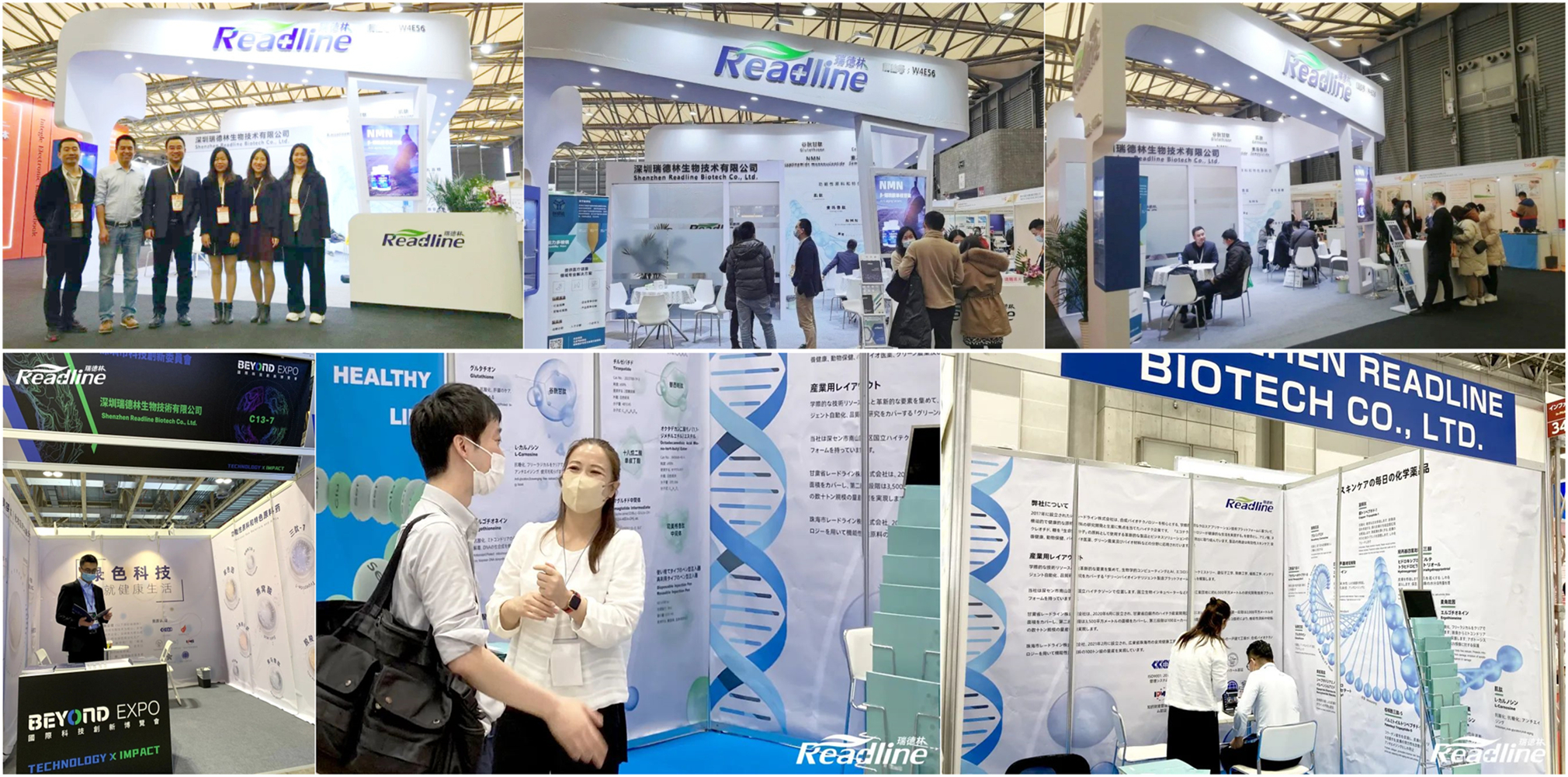
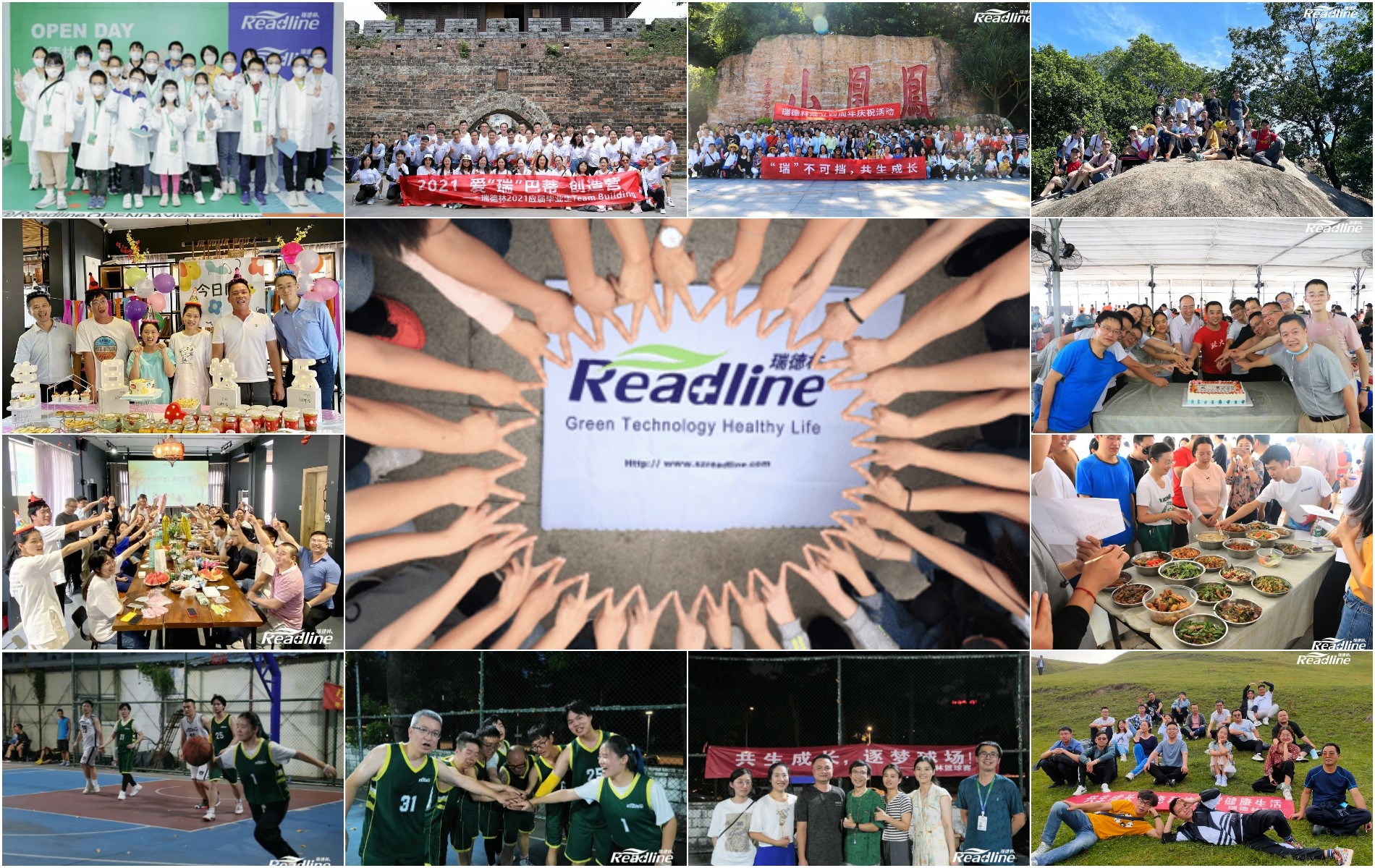
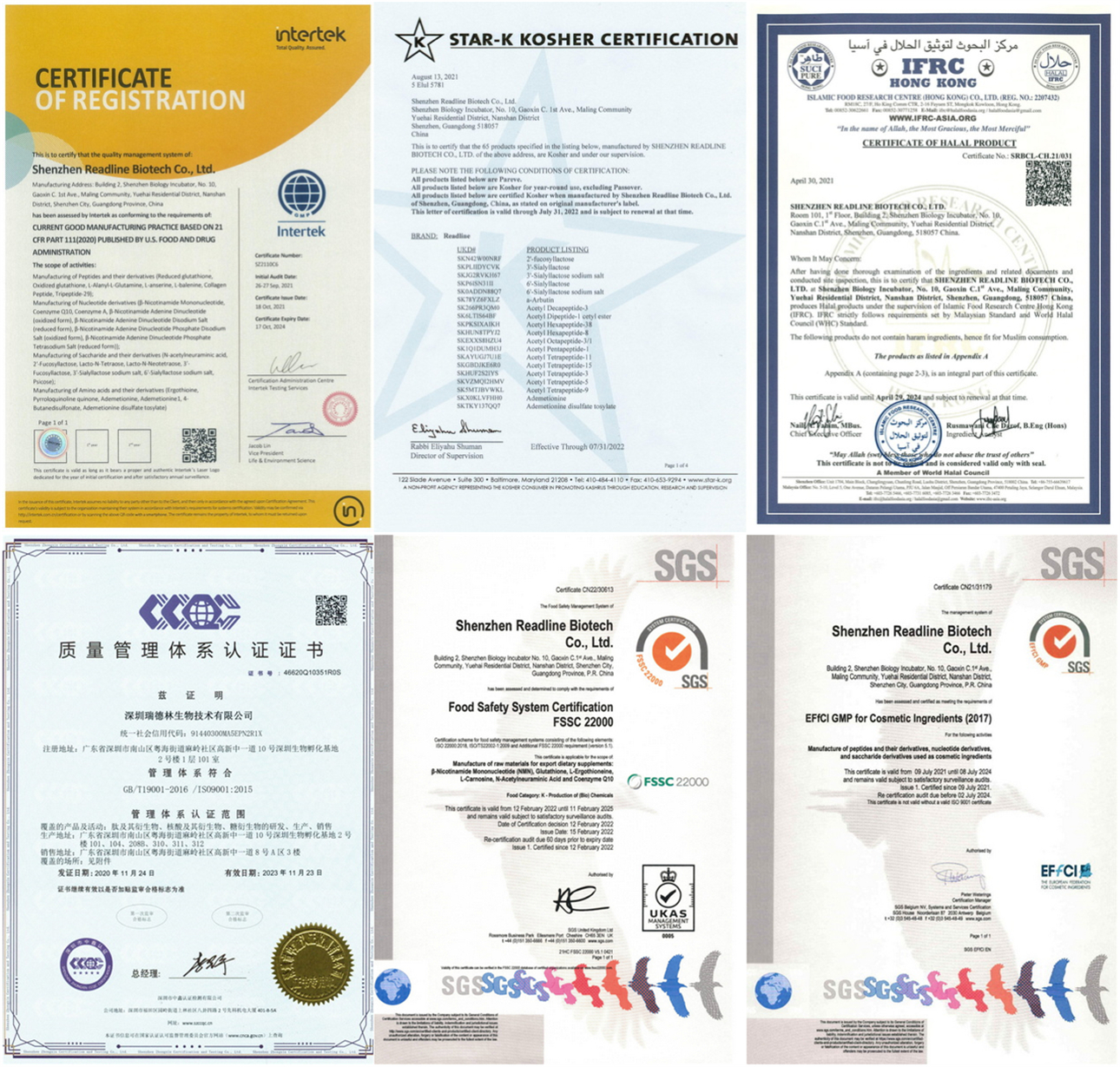
The full name of NMN is "β-nicotinamide mononucleotide", which is an inherent substance in the human body and is also rich in some fruits and vegetables. In the human body, NMN is the most direct precursor of NAD+, and its function is reflected by NAD+. NAD+ is also known as coenzyme I, the full name of nicotinamide adenine dinucleotide, exists in every cell and participates in thousands of reactions.
NMN has important physiological functions on human cells, can be naturally synthesized in cells, and can also be derived from a variety of foods, including broccoli, cabbage, cucumber, edamame, avocado, etc. In a variety of cellular metabolic reactions, nicotinamide adenine dinucleotide (NAD) molecules play an important role and are an important support for cell viability.
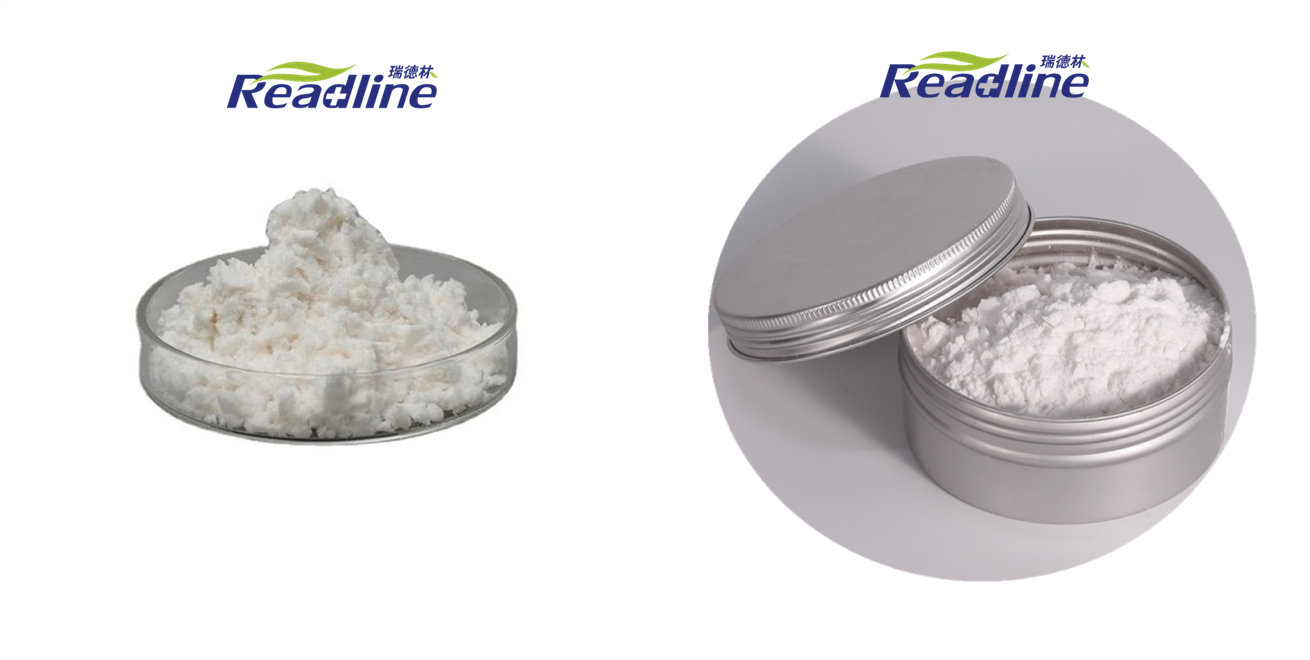
① Steps to maintain youth in the human body
The human body synthesizes a large amount of NMN every day → converts it into coenzyme I (NAD+) → maintains youthful vitality. After the nutrients (proteins, fats, carbohydrates, minerals, vitamins, etc.) in the food we eat every day enter the body, they are converted into the components of our cells to synthesize our genes, collagen, immune antibodies, etc., or produce energy for cells to use. This must rely on coenzyme I (NAD+) to achieve. Therefore, we very much need NMN to be converted into coenzyme I (NAD+) for human use.
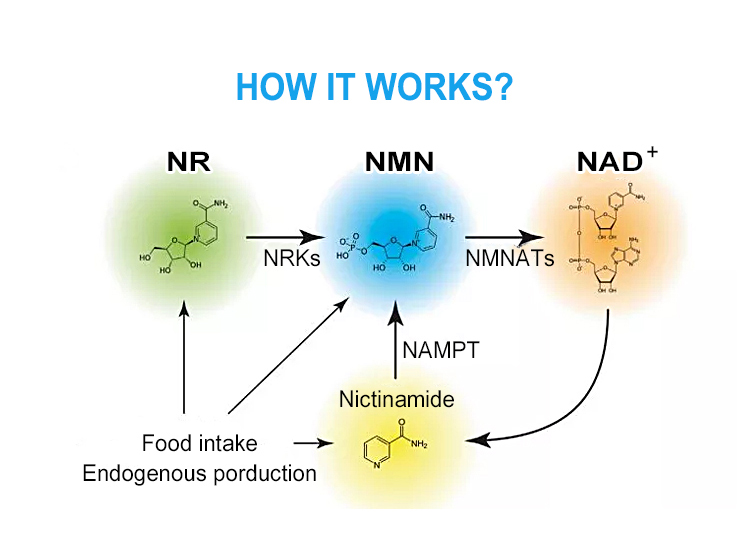
②Health problems caused by NAD+ reduction
In the whole process of energy production and damage, the level of nicotinamide adenine dinucleotide (NAD+, also known as coenzyme I or Noga factor) is particularly important. NAD+ is the organelle mitochondria that rely on to generate energy for cell growth. One of the key factors in all its basic functions, it plays a key role in the interaction between the nucleus and mitochondria.
The concentration of NAD+ in the human body affects cell senescence, and when the concentration decreases, it accelerates cell senescence; when the concentration is stable, it maintains normal cell function. Therefore, human oxidation, organ aging, cancer occurrence and NAD+ are closely related. As we age, the body produces less NAD+ and the interaction between mitochondria and the nucleus is weakened. Decreased levels of NAD+ lead to a hypoxic state of cells that hinders the interaction between mitochondria and the nucleus, which in turn reduces the ability of cells to produce energy, ultimately leading to aging and disease.
There is very little NMN in food, which is far from meeting the needs of the human body. For example, vegetables edamame and broccoli that contains more NMN in the daily diet contain an average of less than 1mg of NMN per 100g, and fruits with high content of avocado per 20kg. Only about 100mg and the amount of NMN synthesized in an adult body every day is equivalent to thousands of kilograms of avocados! Therefore, it is not feasible to supplement the NMN needed by the human body through fruits and vegetables.
③ The role and efficacy of supplementing coenzyme I (NAD+)
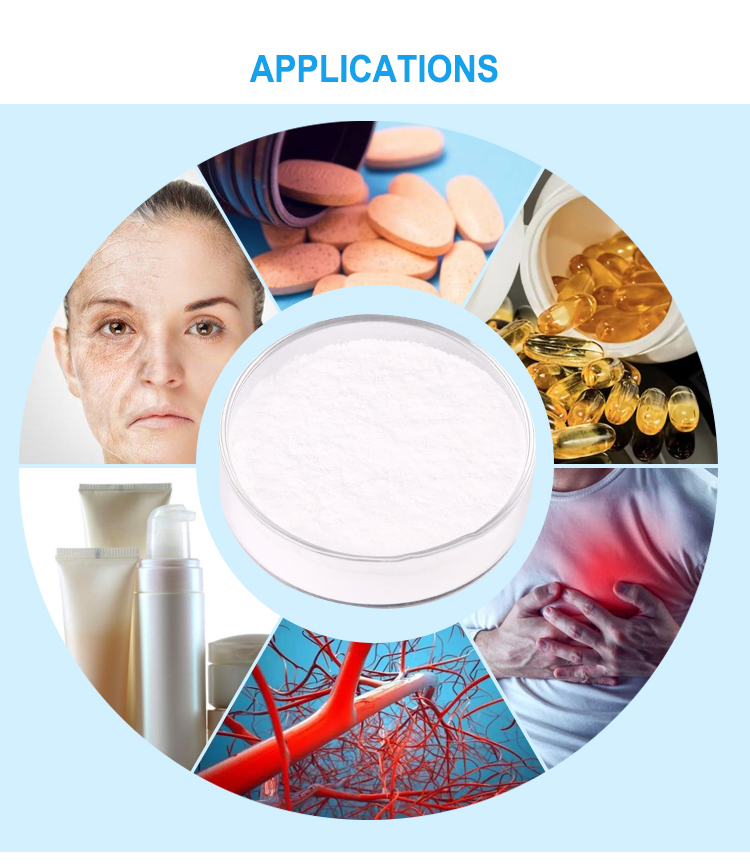
At present, there are about three kinds of NMN synthesis methods on the market: biological fermentation method, chemical synthesis and holoenzymatic method. Among them, the biological fermentation method has less output and higher cost, and the products produced are difficult for ordinary people to touch. For example, Japanese NMN products are produced by this method, and the price of a single bottle is as high as 20,000. Secondly, although chemical synthesis has large output and a cheap price, the risk of impurities or metals exceeding the standard is high.
In contrast, the whole enzymatic technology used by Readline not only reduces the production cost but also ensures the green safety and high purity of the product. Readline Bio's whole enzymatic technology has obtained 2 Chinese invention patents.
β-Nicotinamide Mononucleotide CAS 1094-61-7; NMN CAS 1310-58-3; Beta-Nicotinamide Mononucleotide; NMN Supplier; NMN China Manufacturer; β-Nicotinamide Mononucleotide (β-NMN) Manufacturer; β-Nicotinamide Mononucleotide (β-NMN) Suppliers; Nicotinamide Mononucleotide Powder; NMN Powder; NMN Nicotinamide Mononucleotide; 99% NMN; 99% Nicotinamide Mononucleotide; nicotinamide d-ribonucleotide; Nicotinamide Mononucleotide Supplement; NMN Supplement.
① The whole enzymatic technology we use not only reduces the production cost, but also ensures the green safety and high purity of the product. At the same time, our whole enzymatic technology has obtained 2 Chinese invention patents.
② We have successively obtained ISO9001:2015 quality management system certification, intellectual property management system certification, IFRC Halal certification, EFfCl GMP certification, Kosher Jewish certification and FDA cGMP, FSSC 22000 certification and many other authoritative certifications at home and abroad, and obtained the national high-tech enterprise Certification and the title of top 30 enterprises in the field of medical and health care in Shenzhen.
③ Our R&D team accounts for 60%, the master's degree or above accounts for nearly 50%, and 12% of the entrepreneurs have overseas study or work experience.
TT, LC, OA, and DA, all the payments are optional, with the support of Chemball.
Yes, please contact us if you have any special requests, you will get what you want.
Of course! We specialized in this line for many years, many customers make a deal with me because we can deliver the goods on time and keep the goods top quality!
You are always warmly welcome to visit us at any time. Before we start B2B, Chemball has audited our company and approved our credit. Commitment is the No.1 Point of our Enterprise’s Value.
Contact us by Chemball page, email, mobile phone, any way you like! We will try our best to respond ASAP!
